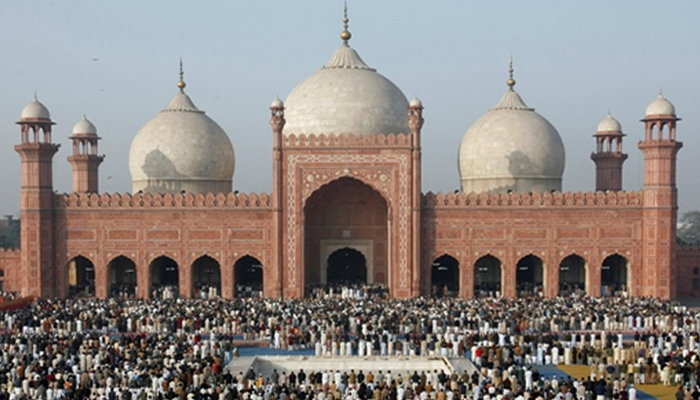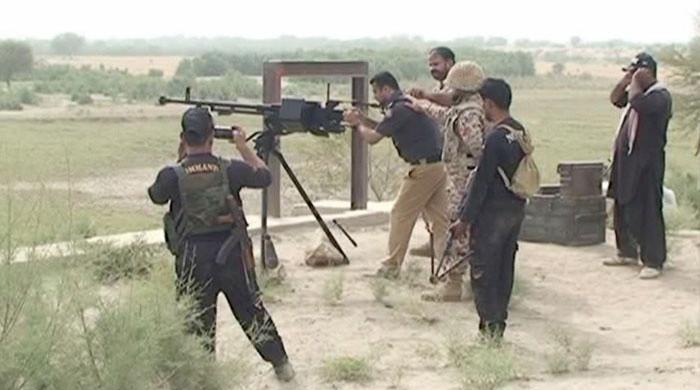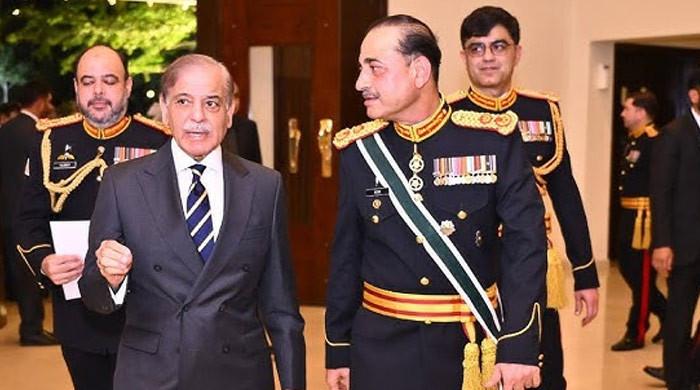Pakistani clerics quarrel as Egypt's Al-Azhar University announces major fatwa
"It is not possible to get rid of corona without asking God for forgiveness," says Mufti Taqi Usmani
March 26, 2020

At the request of President Arif Alvi, the Grand Imam Sheikh of Egypt's Al Azhar University issued a Fatwa permitting the suspension of Friday prayers to control the spread of the deadly coronavirus.
Saudi Arabia, Iran, United Arab Emirates, Kuwait, Palestine, Turkey, Syria and various other Muslim majority countries have suspended collective prayers but the Ulema of Pakistan have been unable to unite in fighting this virus and are continuing collective prayers despite efforts by the government to stop them.
Earlier, the spread of coronavirus in Palestine was linked to the religious gathering in Raiwind, which is one of the largest ones in the world. Pakistan was named a "super-spreader" by international media outlets in the Muslim world after failing to take necessary precautions in controlling the spread in its mosques.
Despite the Fatwa by Al Azhar university — which is considered as the Islamic world's most prestigious one — Pakistani clerics continue offering collective prayers, ignoring the severe health risks they pose.
Mufti Taqi Usmani who is one of the most revered religious clerics of Pakistan announced on Wednesday that congregational prayers would continue with the exception of people older than 50, young kids and those that showed symptoms of the deadly coronavirus.
"It is not possible to get rid of corona without asking God for forgiveness," Usmani said.
Mufti Tariq Masood, another prominent religious cleric opposed Usmani's view and supported the government in advising a ban on congregational prayers. In an emotional message released on social media, Masood said: "We still don't understand the intensity of this virus. You can pray at home during this time and ask Allah for forgiveness and health."
Read more: President Alvi asks ulema to urge masses to pray at home
A few days earlier, Allama Zameer Akhtar Naqvi claimed to possess the antidote for coronavirus. This claim was highly criticised by Pakistanis who believed that this claim showed how non-serious Pakistani clerics were in dealing with this global health crisis.
While scientists and pharmaceutical companies are working to develop a vaccine that could cure the virus, experts believe that such a vaccine could take anywhere between 12-18 months before it reaches the average consumer.
The Chairman of the Senate Committee on Science and Technology, Senator Sajjad Mir also commented on the Pakistani clerics' position on dealing with the virus. He said, "Please do not introduce a narrow-minded interpretation of our religion. Use common sense when interpreting religious texts".
Various members of the civil society and the government are collectively trying to convince the Ulema of Pakistan to unanimously agree on temporarily halting congregational prayers but as of the filing of this report, no consensus has been reached.










